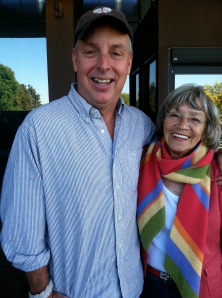On September 1, my new book, Charlie Bumpers vs. the Teacher of the Year, comes out on Peachtree Press. Over the next couple of weeks, I’ll be posting some thoughts about the book and my process. Here’s a video trailer about it.
It’s the first in a series of six books that will be coming out every season (fall and spring) for the next three years. So far, so good, with a nice review in Publishers Weekly, and it’s a Junior Library Guild selection.
Here are several things I’ve learned. They might not be true for all authors, but I know they’re true for me.
1) Books take forever. They take forever to write. They take forever to edit. They take forever to get accepted. They take forever to edit again. They take forever to come out.
There is some author somewhere (Nora Roberts, I guess) who thinks of a book one week, writes it in the next three weeks, and has it published by the end of the year.
I do not know that person. I am not that person.
I wrote the first draft of Charlie seven or eight years ago. It was in the hands of a number of editors who politely demurred. It sat on one editor’s desk for two years. I rewrote it numerous times, on the advice of editors and friends and agents. It was accepted and then the publishing house that accepted it died. It found another publisher and editor. And then I got to edit it again.
I began to feel singled out. Why me? This is ridiculous! And then I started talking to other authors. They all nodded, “Yup. Happened to me.” Not so special, evidently.
I don’t really want things to take forever, but I will admit (when tied down and approached by someone brandishing terrifying implements of torture) that the finished product I hope you will hold in your hands is much better than the one I started with. Believe me – I know who this kid is, and I like him a lot, and I wouldn’t like him as much if all those people weren’t involved. The book is better for the time it took – although I wouldn’t mind cutting the process by a couple of years. Which I guess I get to do, since the second book is due to my editor next week.
2) It takes a lot of people. My book is a child and requires a village. Or at least about thirty or forty people. Again, the smart writer does not need this, maybe – although if I look at any acknowledgement page in any published book, I see there are many idiot writers that require help just like me.
I need readers – a lot of them – people with different skills from mine. And I take all of these people’s names in vain because of the things they say or suggest or intimate. Behind their backs, I call them idiots and fools. I do not say these things to their faces, since I need them, and will need them again. My name is on the cover, but that is a shabby egotism which will not stand to scrutiny.
3) The book you’re working on is yourself. I won’t get too spiritual about this, but there’s a discipline required here, and this long arduous process has tested me about as much as anything else I’ve done. Failure is possible (Even after it comes out!). Success is never assured. Few things are under your control. Mostly, what you control is whether you sit down and write.
In the meantime, I have a book coming out that I’m proud of, and that I’ve read over so many times, I pretty much have memorized. And another one in process.
Call me lucky.
